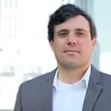Car-Centric Planning

New Zealand Eliminates Parking Minimums and Height Limits to Increase Urban Infill
Once again, New Zealand shows the way! The national government's new urban development policy will eliminate off-street parking requirements and remove low height-limits near transit stations to encourage more efficient infill development.

Liberating Cities from Cars
Examining models of progress toward restrictions on the use and storage of automobiles from urban areas around the world.

Draft Environmental Impact Statement for Maryland's Big Highway Widening Project Released
The state of Maryland is moving forward with a highway widening plan that would spend $11 billion in a private-partnership to add toll lanes to two Capital Beltway highways.

Cars Retake Their Place on Ocean Drive in Miami Beach
Ocean Drive in South Beach is the site of an ongoing pilot project in making space for pedestrians and businesses in space previously devoted to cars. Advocates and some local politicians don't like the direction that the experiment is headed.

New York Poised to Become a Biking City
Could the pandemic be a tipping point for a century of car-centric planning in New York City's to give way to a more bike-friendly city?

First New Bridge to Manhattan in Decades Proposed Just for Pedestrians and People on Bikes
Introducing the proposed Queens Ribbon Bridge, a $100 million idea to connect Manhattan to Long Island City in Queens, by way of Roosevelt Island.

North Lake Shore Drive Redo Falls Short of Bus Priority Expectations
Strong criticisms of the project alternatives under consideration by the Illinois Department of Transportation for the closely watched North Lake Shore Drive project.

Road Widening Plans Criticized in Fairfax County Virginia
The car-centric status quo is continuing unabated even as Fairfax County commits to more urban thinking on transportation and land use planning.

Cities Are Suddenly a Little Less Car-Centric
(Opinion) After devoting more than a century of planning and engineering effort to the movement and storage of cars above all other considerations, U.S. cities have suddenly, temporarily shifted priorities.

'Ramps to Nowhere' Will Come Down in Seattle as New Debates Heat Up
The history of Seattle's opposition to car infrastructure is being commemorated while it's being made.

The Commute of the Future: Congested Mess, or Massive Mode Shift?
Researchers around the world are trying to get an idea about how increased automobile trips, fewer shared modes, and high unemployment will alter long-term trends in transportation.

Americans Would Prefer to Drive Themselves After the Pandemic, Survey Says
A massive survey on the sentiments of Americans during the COVID-19 pandemic reports that many people are less likely to ride public transit, or rely on Uber and Lyft, in the future.

Calls for Environmental Action Increasing as Coronavirus Lingers
We can't go back to the way of life that makes pollution and climate change acceptable, according to multiple articles published on and around Earth Day. It's time for change.

Congestion Pricing in Manhattan Likely Stuck in COVID-19 Limbo
The federal government was already slow to cooperate with a plan to charge automobile drivers for entering certain parts of Manhattan, but with coronavirus commanding so much attention, the project isn't likely to move forward any time soon.

Lessons from Pandemics: Transportation Risks and Safety Strategies
Many people assume that infectious disease risks make public transport dangerous and automobile travel safe, but this is generally untrue. Other factors have more effect on pandemic risk.

Milan Commits to a Less Car-Centric New Normal
Milan is making changes to its streets to ensure that the city's residents and employment base don't overwhelm the city with new automobile traffic when the city reopens for business.

Car-Free Market Street Benefits Micromobility, Transit Without Ruining Car Commutes, Studies Say
Multiple studies have quantified the early results from a project in San Francisco that blocked most private automobile traffic from Market Street in the city's downtown.

Chain Restaurants and Cars Go Together. Driving Ruins Local Flavor
City Observatory research shows that urban regions where residents drive less and rely more on other travel modes have more independent restaurants and more varied dining options. Bon appetit for walking, bicycling and public transit.

Philly Safe Streets Advocates Want What San Francisco and New York Are Having
The idea of blocking major streets to private automobiles is making advocates envious in cities that have yet to implement the idea. A petition is circulating to give the car-free treatment to Chestnut Street in Philadelphia.

Congestion Pricing Has Mayoral Support in San Francisco
Additional disincentives for driving (i.e., congestion pricing and new parking fees) are on the mayor's agenda in San Francisco.
Pagination
Placer County
City of Morganton
HUD's Office of Policy Development and Research
Dongguan Binhaiwan Bay Area Management Committee
City of Waukesha, WI
Los Angeles County Metropolitan Transportation Authority
Indiana Borough
Urban Design for Planners 1: Software Tools
This six-course series explores essential urban design concepts using open source software and equips planners with the tools they need to participate fully in the urban design process.
Planning for Universal Design
Learn the tools for implementing Universal Design in planning regulations.










